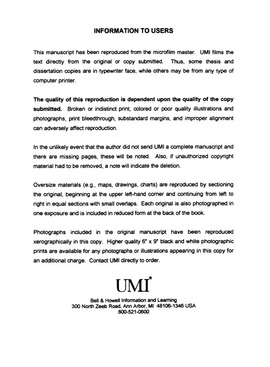| dc.contributor.advisor | Durso, Francis T., | en_US |
| dc.contributor.author | Truitt, Todd Richard. | en_US |
| dc.date.accessioned | 2013-08-16T12:30:41Z | |
| dc.date.available | 2013-08-16T12:30:41Z | |
| dc.date.issued | 1999 | en_US |
| dc.identifier.uri | https://hdl.handle.net/11244/5846 | |
| dc.description.abstract | The experiment was conducted at Cleveland (ZOB) and Jacksonville (ZJX) ARTCCs utilizing individual controllers and controller teams operating in either high or low altitude sectors. Each participant ran two, 30-minute scenarios. In the Normal condition, participants worked as they normally would. During the Optional FPS condition, participants removed FPSs that were not needed after radar contact and communications were established. Also, FPS marking was not required for any information that was recorded elsewhere, such as via computer entry or landline communication. Scenarios were counterbalanced but sample sizes did not allow counterbalancing of conditions. Participants responded to the Workload Assessment Keypad (WAK) every five minutes while a subject matter expert made performance ratings for each participant or team of participants. Experimenters recorded activity relevant to the plan view display, computer readout device, and FPSs that may be used as a means to compensate for reduced FPS activity. Participants provided a position relief briefing at the end of each scenario and completed a modified version of the NASA Task Load Index (TLX). | en_US |
| dc.description.abstract | For individuals and teams at ZOB and ZJX, participants removed proportionally more FPSs and marked them less often in the Optional FPS condition. There was no effect on performance and participants did not seem to compensate by using flight plan readouts, route displays, or any other means during the Optional FPS condition. On-line measures (WAK) and post-scenario measures of subjective workload (TLX) were comparable for the two conditions. Overall, the Optional FPS procedure appeared to be a viable means by which controllers' reliance and use of the FPS may be reduced. | en_US |
| dc.description.abstract | The new Display System Replacement (DSR) being implemented in air route traffic control centers (ARTCC) will provide controllers less room to post Flight Progress Strips (FPS). The current experiment tested a new FPS marking and posting procedure designed to reduce the controller's need for, or reliance on, the FPS. | en_US |
| dc.format.extent | vii, 73 leaves : | en_US |
| dc.subject | Air traffic controllers Workload United States. | en_US |
| dc.subject | Psychology, Cognitive. | en_US |
| dc.subject | Psychology, Experimental. | en_US |
| dc.title | Reduction of flight progress strip activity for en route air traffic control. | en_US |
| dc.type | Thesis | en_US |
| dc.thesis.degree | Ph.D. | en_US |
| dc.thesis.degreeDiscipline | Department of Psychology | en_US |
| dc.note | Adviser: Francis T. Durso. | en_US |
| dc.note | Source: Dissertation Abstracts International, Volume: 60-06, Section: B, page: 2977. | en_US |
| ou.identifier | (UMI)AAI9935533 | en_US |
| ou.group | College of Arts and Sciences::Department of Psychology | |
